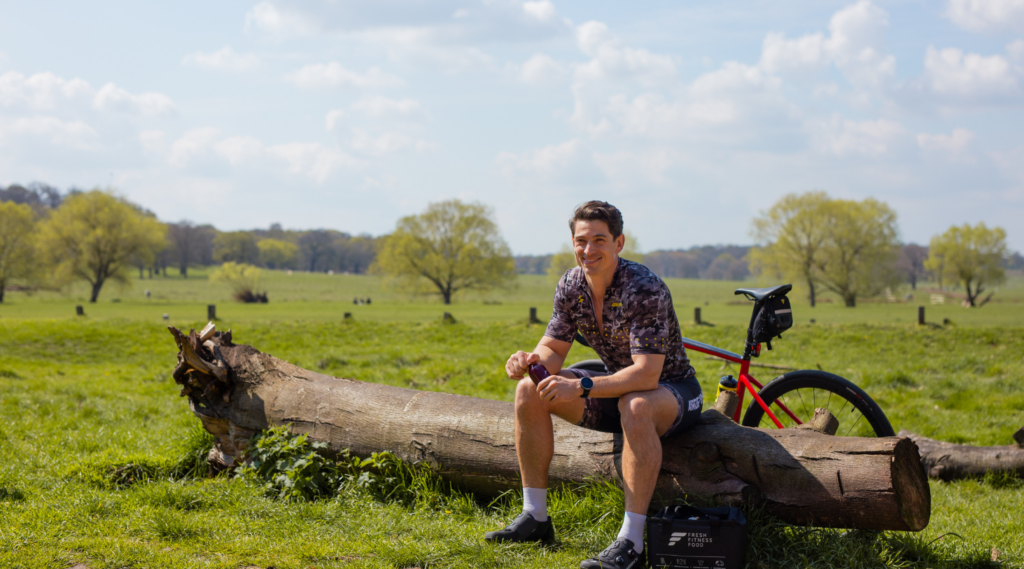5 Essential Tips for Training in Warmer Weather

As the temperature rises, staying motivated and continuing your training routine (whether that’s for the short summer we have in the UK or whilst you’re on holiday) can become a challenge. However, with proper preparation and a few adjustments here and there, you can optimise your workouts and make the most of training in warmer weather.
In this blog post, we will provide you with 5 essential tips to help you stay motivated and continue tracking towards your fitness goals even in the heat!
1. Time Your Workouts Wisely
Choosing the right time of day to exercise can make a significant difference in your performance and overall comfort.
Aim to schedule your workouts during the cooler parts of the day, such as early morning or late evening. By avoiding the peak heat hours, usually between 10 a.m. and 4 p.m., you can reduce the risk of heat exhaustion and ensure a far more pleasant training experience.
2. Hydrate, Hydrate, Hydrate
Hydration is a vital daily consideration and something we have discussed previously here.
However, this is of even greater importance when training in warmer weather. The combination of high temperatures and physical exertion can quickly lead to dehydration, which can negatively impact your performance and can have knock-on effects on the rest of your day.
Make sure to drink plenty of fluids throughout the day, especially before, during, and after your workouts. Consider water, as well as sports drinks/hydration tablets, to replenish both water and electrolytes lost through sweat, especially after longer sessions.
3. Dress Appropriately
Choosing the right attire can greatly enhance your comfort and performance in warm-weather training.
Opt for lightweight, breathable fabrics that wick away moisture from your skin, allowing for better ventilation and evaporation of sweat. Loose-fitting clothing in light colours reflects heat and helps to keep your body temperature regulated.
A cap, sunnies and suncream (SPF 30 or higher) are also advised if you’re taking your training outdoors!
4. Adjust Your Intensity and Duration
Training in warmer weather requires modifications to your workout intensity and duration. High-intensity exercises in extreme heat can strain your body and increase the risk of heat-related illnesses.
Consider lowering the intensity of your workouts and gradually building it up as your body adapts to the heat. Additionally, shorten your training sessions or split them into smaller, more manageable chunks to prevent overexertion. Listen to your body, take breaks when needed, and don’t feel the need to push yourself too hard in the heat.
Also, the fitter you are, the better your body can tolerate exercise in the heat, so it is worth trying to build your fitness to a higher level in the spring, before the first heat wave of the year, not as the temperatures begin to rise!
5. Seek Out Shaded and Cooler Areas
When planning your outdoor workouts, search for shaded and cooler areas in your surroundings. Parks with ample tree coverage or outdoor tracks with shaded sections can provide relief from direct sunlight and reduce the overall temperature. If possible, choose routes near bodies of water, such as lakes or rivers, as they tend to be cooler due to the evaporative effect. Training in these areas can make your workouts more enjoyable and lessen the impact of the heat.
Alternatively, opting for a class or workout in an air-conditioned studio or gym is a great option.
Training in warmer weather can present its own set of challenges, but with the right approach, you can continue to progress towards your fitness goals while staying safe and comfortable.
Remember to listen to your body, be mindful of any signs of overheating or dehydration, and always prioritise your health and well-being. Stay motivated, stay active, and embrace the summer training season with enthusiasm!
Fresh Fitness Food provides personalised meal plans delivered straight to your door, ensuring not only that you have the nutrients you need to keep you energised, but also that you have the time usually spent shopping, cooking and washing up, to engage in your favourite activities. Order today and start smashing your goals with personalised nutrition!
Get £50 off a 5-day trial with code: BLOG50. Start your trial here!
Want to discuss which nutrition plan is right for you first? Book a call with our in-house nutrition team here.
- The Comfort of Tradition: Why We Crave Holiday Foods - December 23, 2024
- Is There a Place for Ultra-Processed Foods in Your Diet? - November 29, 2024
- Tempeh and Quinoa Power Bowl Recipe - November 7, 2024